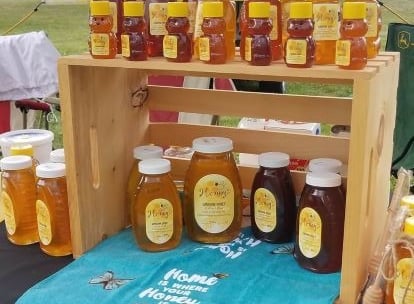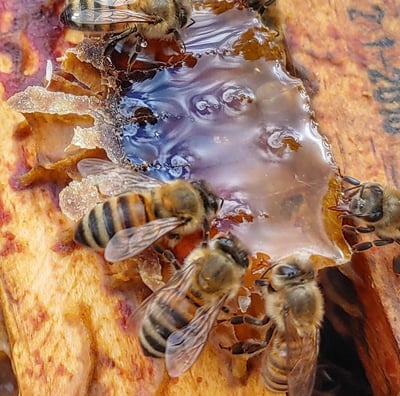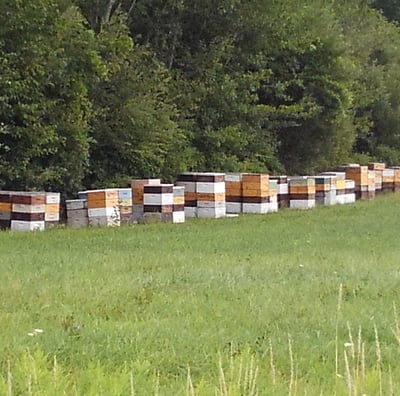
Discover the Art of Beekeeping
Join us in celebrating nature's wonders through beekeeping and honey production.
Rated 5 stars by customers
★★★★★
Welcome to Sunshine HoneyBee Farm
Located in Central New York, we specialize in beekeeping and products of the beehive. Don MacCombie, a beekeeper for over ten years with more than 40 years of agriculture experience in central New York.
About Don MacCombie
An Air Force Veteran, Don is a member of several Bee Clubs, and the past president of Mid-York Beekeepers Association from Dec. 2022 thru Dec. 2024.
Don has taught and lectured at the county Bee Keeping Education Classes, local schools, libraries, and garden clubs. He is currently completing the Cornell Master Bee Keeping Course and mentors' new beekeepers of all ages both with class and field training.


Best honey in the region!
Says customer Lance
"
Beekeeping Overview
Explore our farm's beekeeping services, workshops, and unique products of the hive offered by Don MacCombie.




Products of the Bee Hive
We offer to consumers, honey, bees wax, lip balms, and hand creams.
Beekeeping Classes
Join our informative classes led by Don Maccombie to learn the art of beekeeping.
History of the Honey Bee
Honey bees evolved from predatory wasps approximately 120 million years ago, likely originating in the Southern Hemisphere and spreading to other continents via vicariance and dispersal. Humans have been interacting with and domesticating honey bees for millennia, with evidence of beekeeping dating back over 9,000 years, according to a new study of prehistoric artifacts. the most common domesticated species, amellifera, was first domesticated before 2600 BC and was the third insect to have its genome mapped.
Evolution and Origins:
Evolution from Wasps:
Bees are thought to have evolved from predatory wasps, initially carnivorous, that later transitioned to a vegetarian diet of nectar and pollen.
Southern Hemisphere Origin:
Early evolution of major bee lineages is associated with the South American or African landmasses.
Spread to Northern Continents:
Bees colonized northern continents via a complex history of vicariance and dispersal.
Fossil Evidence:
Fossil evidence of social bees, including a worker stingless bee species (Criticona prisca) from 60 million years ago, suggests that sociality in bees is at least that old.
Human Interaction and Domestication:
Early Beekeeping:
Evidence of humans collecting honey from wild bees' dates back 15,000 years, with efforts to domesticate them shown in ancient Egyptian art around 4,500 years ago.
Ancient Civilizations:
Ancient Egyptians are credited with pioneering beekeeping techniques, and honey was used for both sustenance and medicinal purposes in ancient Greece and Rome.
Beekeeping in other cultures:
Beekeeping also played a role in ancient Indus Valley civilization, the Vedas of ancient India, and ancient China.
Modern Beekeeping:
Honey bees are now integral to modern agriculture, helping pollinate many crops and contributing significantly to crop values.
European Honey Bees in North America:
Honey bees were introduced to North America by European colonists in the early 1600s.
Fast forward to today, this same profession today continues as it did historically, producing products from the hive.
Bee Gallery
Explore our beekeeping journey through captivating images and moments.












Contact Sunshine Honey Bee Farm
Get in touch with us for inquiries about beekeeping classes, hive structures, or local honey products. We look forward to hearing from you!
Please feel free to call rather than emailing, as we spend most of our days in the field tending our bees and many times do not check email that day.
Connect at
(315) 656-3149
Reach
info@sunshinehoneyfarm.com
Welcome
Explore our beekeeping classes and products of the hive.
315.656-3149
© 2024. All rights reserved.
